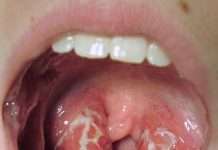
Genital herpes is a common sexually transmitted infection (STI) that affects millions of people worldwide. Although it is often misunderstood or stigmatised, herpes simplex virus (HSV) infections are a significant health issue. This article explores the history, important facts, and current treatment options for genital herpes.
Genital herpes has been a known disease for centuries, but the understanding of its causes and transmission has evolved significantly over time. The term “herpes” comes from the Greek word herpein, meaning “to creep,” which refers to the characteristic pattern of skin lesions that appear during outbreaks. Early references to herpes can be traced back to ancient civilizations, where the disease was likely present but not fully understood. The symptoms—painful sores and blisters—were described in the writings of Hippocrates around 400 BCE, though the viral nature of the disease wasn’t known at the time.
In the 19th century, scientists began to make connections between herpes and its viral origins. By the 20th century, with the advent of modern virology, the herpes simplex virus (HSV) was identified as the causative agent of genital herpes. Today, two types of HSV are recognised: HSV-1 and HSV-2.
HSV-1 is primarily associated with oral herpes (cold sores), but it can also cause genital herpes through oral-genital contact. HSV-2 is more commonly associated with genital herpes, especially through vaginal, anal, or genital-to-genital contact. Despite these distinctions, both types can cause infections in either area of the body.
Genital herpes is one of the most prevalent STIs worldwide. The World Health Organisation (WHO) estimates that over 500 million people aged 15–49 are living with HSV-2 globally. HSV-1, though more commonly associated with oral infections, is responsible for a growing number of genital herpes cases.
The virus is transmitted through skin-to-skin contact, and outbreaks typically occur when an infected person sheds the virus, often without symptoms. While condoms can reduce the risk of transmission, they do not offer complete protection since the virus can spread through areas not covered by a condom.
Many people infected with HSV-2 may never experience symptoms, or may have very mild symptoms that go unnoticed. When symptoms do appear, they typically include painful blisters or sores in the genital, anal, or surrounding areas. These outbreaks may be accompanied by itching, burning, or flu-like symptoms such as fever and swollen lymph nodes. The first outbreak tends to be the most severe and may last longer than subsequent outbreaks.
After the initial infection, the virus remains dormant in the body’s nerve cells. It can reactivate later, often triggered by factors such as stress, illness, hormonal changes, or a weakened immune system. Recurring outbreaks are common but tend to be less severe and shorter in duration than the first episode.
While genital herpes is rarely life-threatening, it can lead to complications in certain cases. In people with weakened immune systems, such as those with HIV/AIDS, herpes outbreaks may be more frequent and severe. Neonatal herpes, a rare but serious condition, can occur if a woman with genital herpes transmits the virus to her baby during childbirth. This can cause severe neurological damage or even be fatal, which is why pregnant women with herpes are often closely monitored.
Treatment for genital herpes
While there is currently no cure for genital herpes, antiviral medications can help manage the infection and reduce the frequency and severity of outbreaks. These medications work by inhibiting the ability of the herpes virus to replicate, thereby reducing symptoms and the risk of transmission. The most commonly prescribed antiviral drugs for genital herpes are acyclovir, valacyclovir, and famciclovir. These drugs can be taken in two ways:
Episodic treatment: This approach is used during an outbreak to shorten the duration and reduce the severity of symptoms. It is typically started as soon as the first signs of an outbreak appear.
Suppressive treatment: For people who experience frequent outbreaks, daily use of antiviral medication can help prevent recurrences and reduce the likelihood of transmitting the virus to others.
These treatments are highly effective at managing genital herpes, and they can significantly reduce the occurrence of outbreaks, though they do not eliminate the virus from the body. In addition to oral antiviral medications, topical treatments may be recommended for symptom relief. These may include creams or ointments that help soothe the painful sores. However, they do not address the underlying viral infection and are less effective than oral medications.










